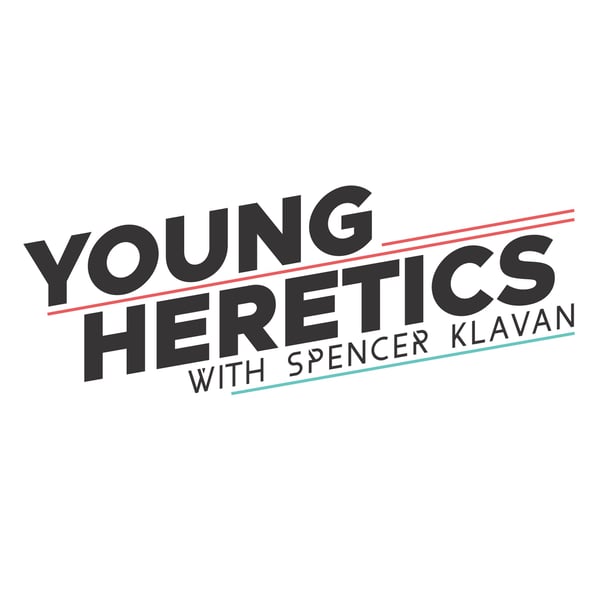Achilles in the Coconut Tree
Young Heretics
Spencer Klavan
4.9 • 4.5K Ratings
🗓️ 13 August 2024
⏱️ 65 minutes
🧾️ Download transcript
Summary
Is the Iliad just a cautionary tale about toxic masculinity? Or is there something deeper at work in Achilles' murderous rage? To really understand the poem, you have to understand--and internalize--what it means to live in an honor culture, and to seek justice in a universe that makes no guarantees. After listening to this episode you can understand the story of the poem as it was meant to be understood, rather than letting petty modern ideologues set the terms of interpretation.
Check out our sponsor, the Ancient Language Institute (now offering Old English instruction!): https://ancientlanguage.com/youngheretics/
Pre-order my new book, Light of the Mind, Light of the World: https://a.co/d/2QccOfM
Subscribe to my new joint Substack with Andrew Klavan (no relation): https://thenewjerusalem.substack.com
Transcript
Click on a timestamp to play from that location
| 0:00.0 | Today on Young Heretics, I'd like to address what might be the question of our age. |
| 0:07.0 | And that is, do you think that you just fell out of a coconut tree, |
| 0:15.0 | or do you exist in the context of all that came before you. Okay, these are the questions for which we can. |
| 0:29.0 | Okay, these are the questions for which we can. |
| 0:32.0 | They must turn to the Western canon and I am only a little bit joking |
| 0:38.6 | We are journeying through the Homeric Mythic Cycle, |
| 0:43.7 | the story of the Trojan War and the journey |
| 0:46.6 | of the heroes back home to Greece, the Aikians |
| 0:50.6 | who came to avenge the abduction of Helen and all that went before and after. |
| 0:57.1 | Last week was all about prophecies and about the journey to Troy. |
| 1:01.2 | I was talking about the surrounding stories that kind of grown up |
| 1:05.4 | around the outbreak of this war, some of the stuff that's not in the Iliad that is |
| 1:10.4 | nevertheless closely associated with this story especially of Achilles and Odysseus making their way to what would be this fateful war, and that led us into talking about prophecies and whether these characters who became so indelible, so quickly in the minds of the ancient Greeks and basically everyone thereafter, |
| 1:30.0 | whether these characters know that they are in the story they're in. |
| 1:35.0 | Obviously in our lives we don't know how our story is going to end, |
| 1:40.0 | but some of us at least have a sense of being in a story that there's a point and a purpose, a trajectory to our lives and what this is one of the things we express in the great narratives, the great legends that we tell, is this idea that there is a contour and a structure to human life, |
| 1:58.0 | and maybe even if we could just unlock the patterning in it, we might be able to take an active role to participate in our own story. |
| 2:07.0 | There's a famous opening line from Charles Dickens, David Copperfield, which is kind of his autobiographical novel, although it's a fictional version. |
| 2:15.4 | And it goes something like whether I am to be the hero of my own life or whether that belongs |
| 2:21.2 | to somebody else, these pages must show. |
| 2:24.7 | In other words, it's only by telling our story that we come to understand our role in it. |
| 2:29.7 | And sometimes you can only understand that role backwards. |
... |
Please login to see the full transcript.
Disclaimer: The podcast and artwork embedded on this page are from Spencer Klavan, and are the property of its owner and not affiliated with or endorsed by Tapesearch.
Generated transcripts are the property of Spencer Klavan and are distributed freely under the Fair Use doctrine. Transcripts generated by Tapesearch are not guaranteed to be accurate.
Copyright © Tapesearch 2025.

